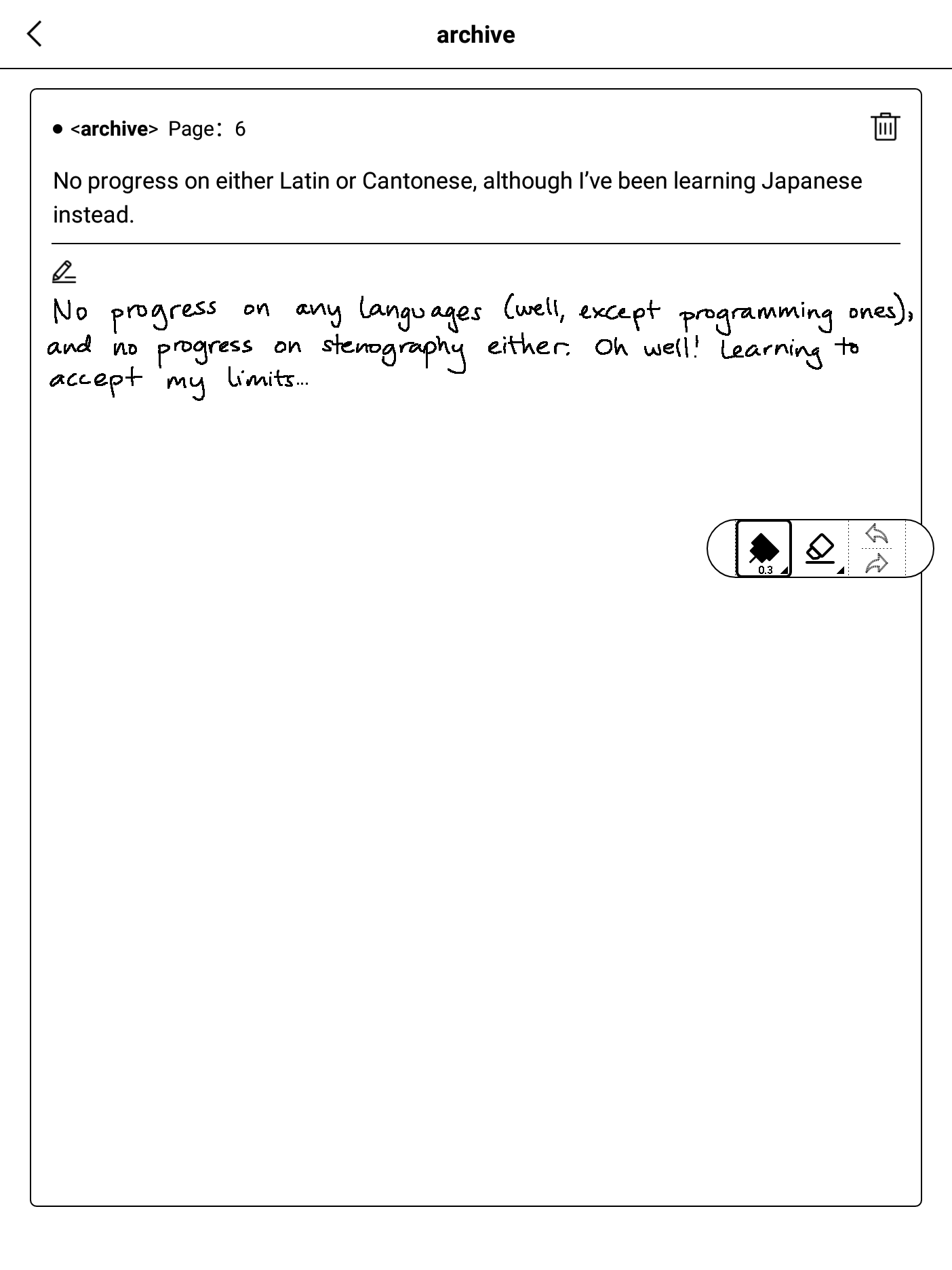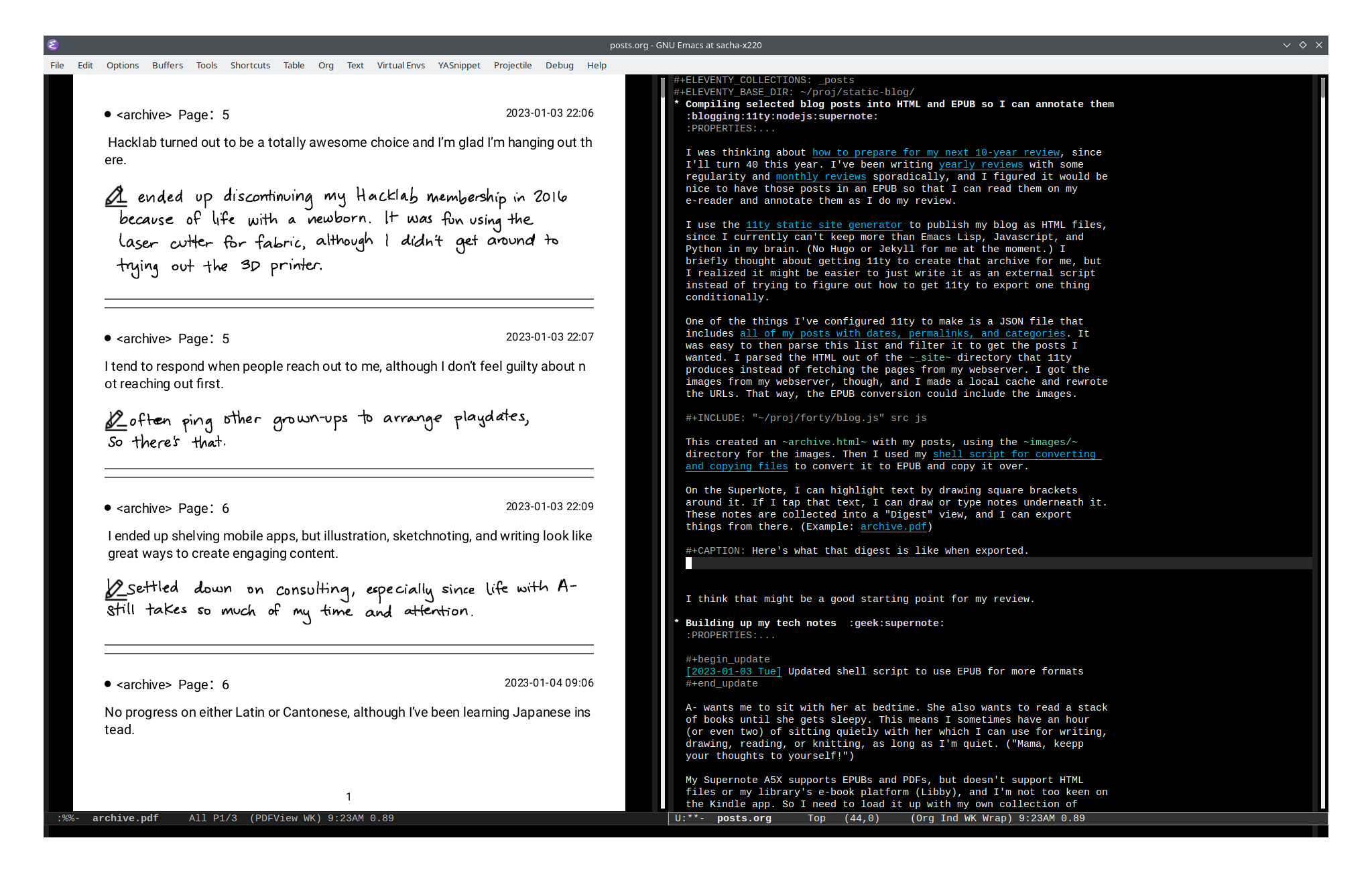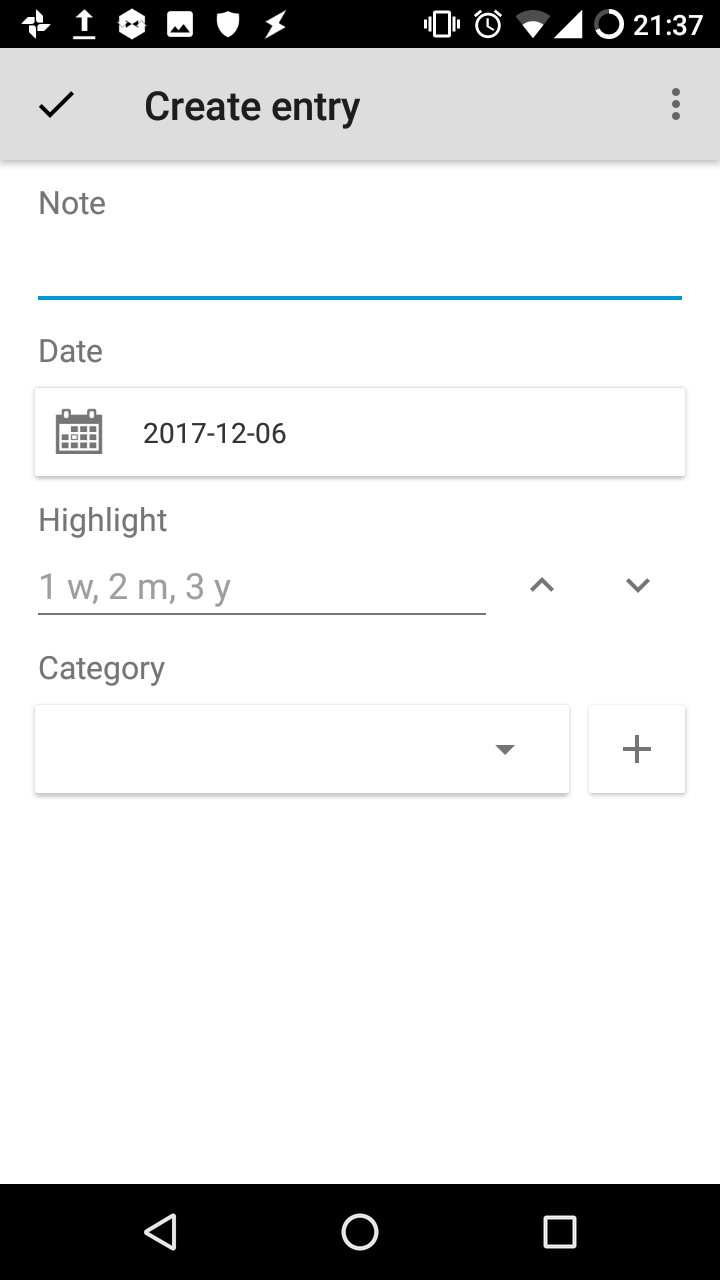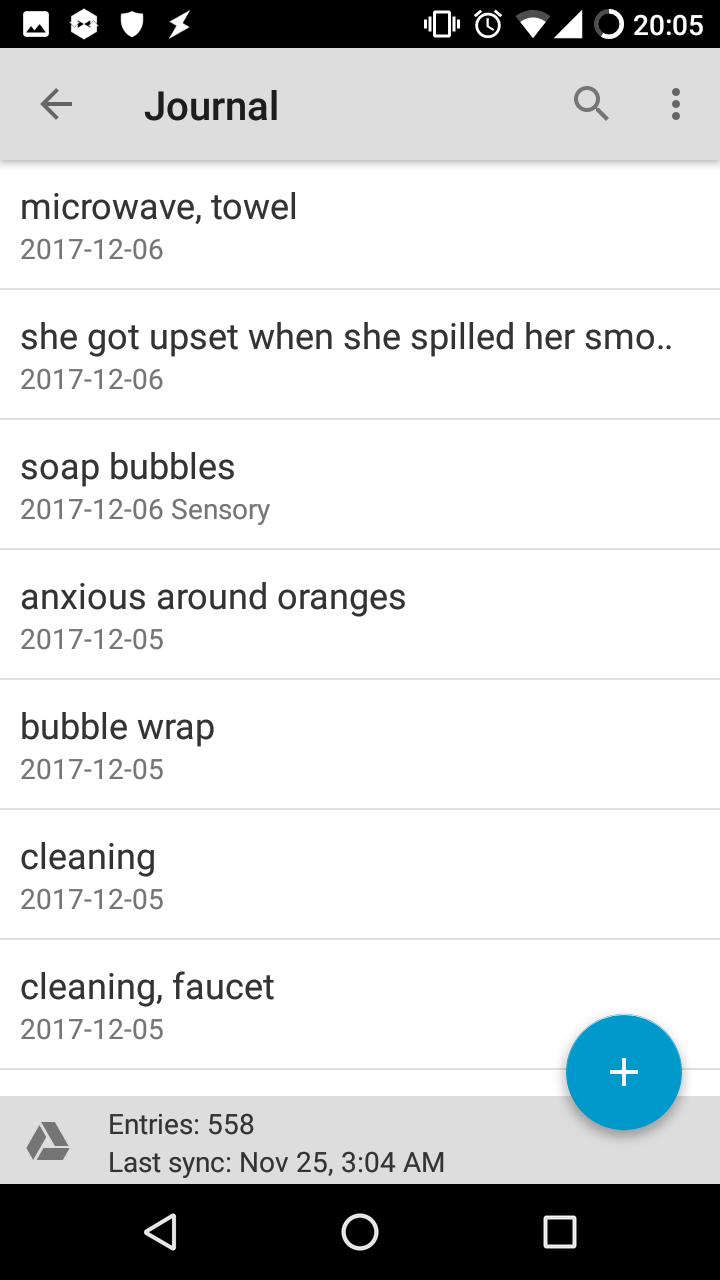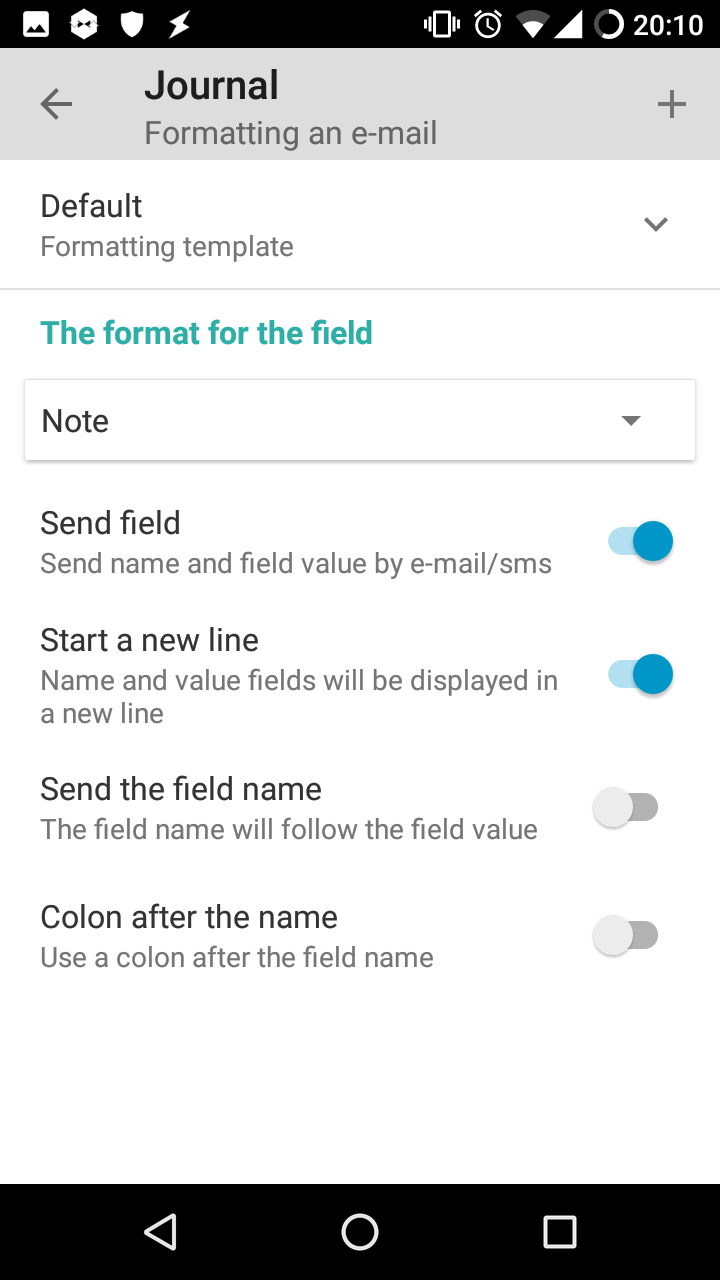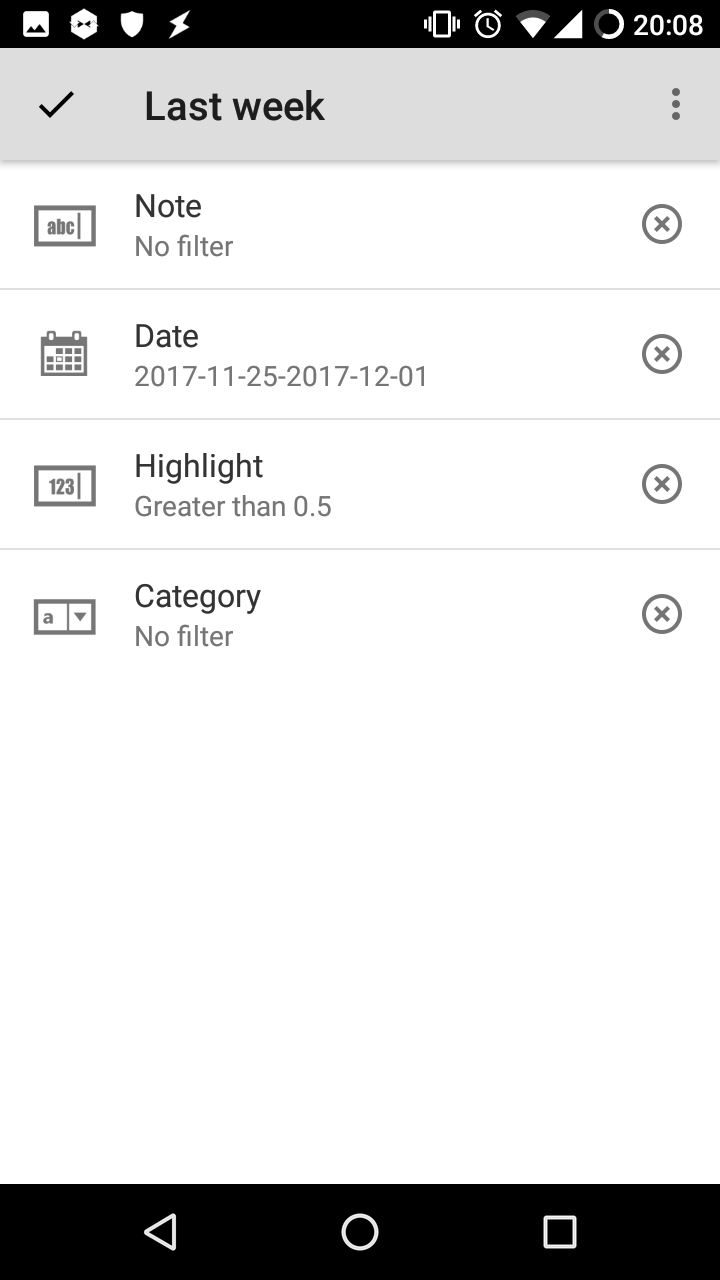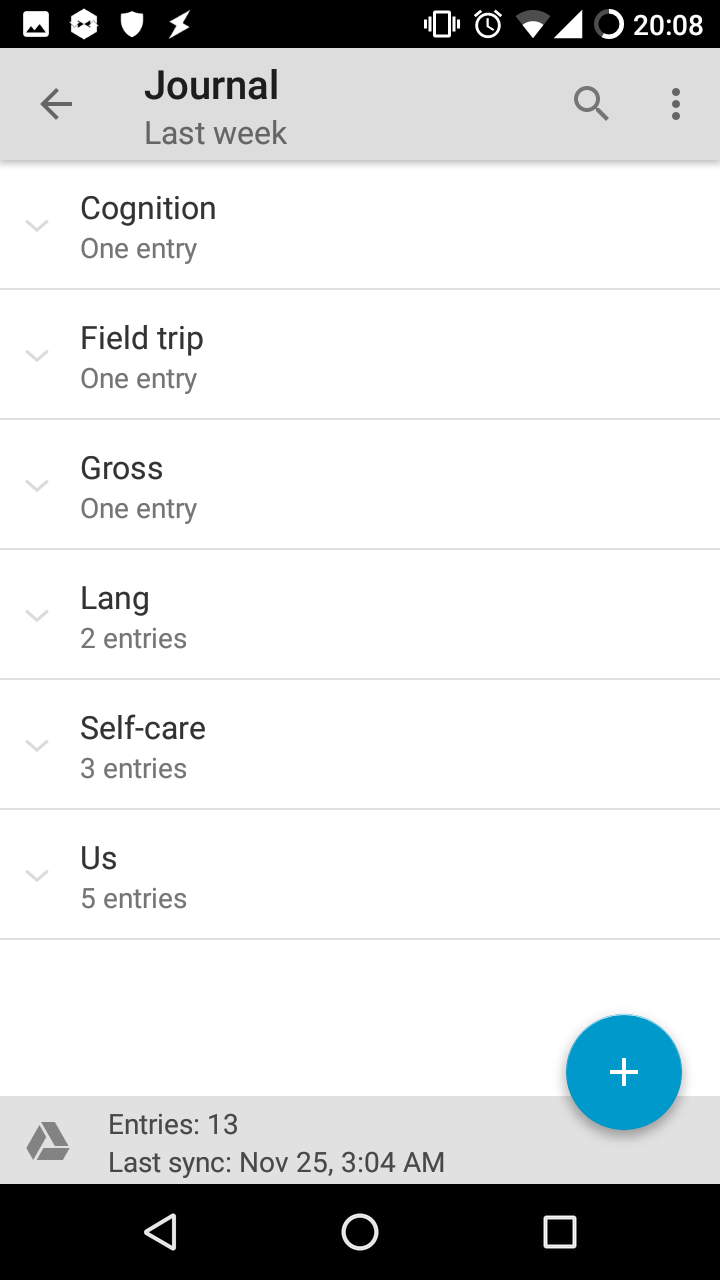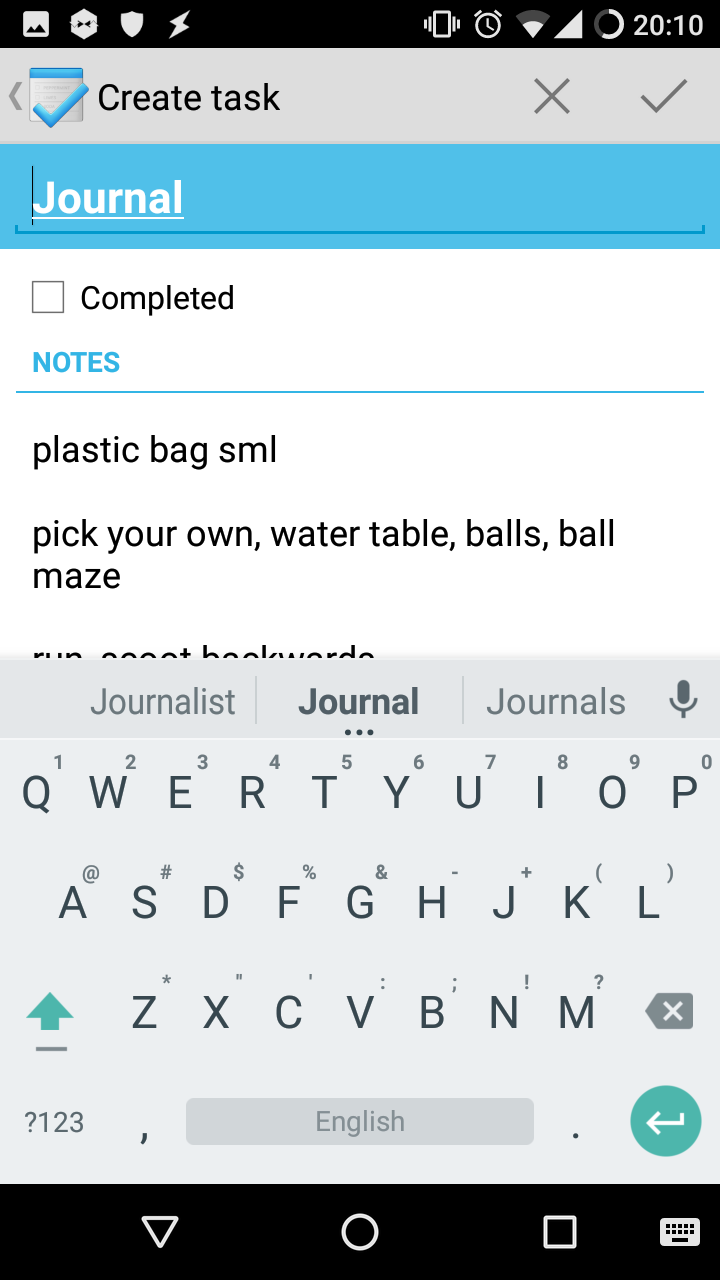Using Javascript to add a "Copy code" link to source code blocks in my blog posts
| css, js, bloggingI'd like to write about code more often. It's easier for people to try out ideas if they can copy the code without fiddling with selecting the text, especially on mobile browsers, so "Copy code" buttons on source code blocks would be nice. I used this tutorial for adding code buttons as a basis for the following CSS and JS code.
First, let's add the buttons with Javascript. I want the buttons to be
visible in the summary line if I'm using the <details /> element. If
not, they can go in the div with the org-src-container class.
/* Start of copy code */ // based on https://www.roboleary.net/2022/01/13/copy-code-to-clipboard-blog.html const copyLabel = 'Copy code'; async function copyCode(block, button) { let code = block.querySelector('pre.src'); let text = code.innerText; await navigator.clipboard.writeText(text); button.innerText = 'Copied'; setTimeout(() => { button.innerText = copyLabel; }, 500); } function addCopyCodeButtons() { if (!navigator.clipboard) return; let blocks = document.querySelectorAll('.org-src-container'); blocks.forEach((block) => { let button = document.createElement('button'); button.innerText = copyLabel; button.classList.add('copy-code'); let details = block.closest('details'); let summary = details && details.querySelector('summary'); if (summary) { summary.appendChild(button); } else { block.appendChild(button); } button.addEventListener('click', async() => { await copyCode(block, button); }); block.setAttribute('tabindex', 0); }); } document.addEventListener("DOMContentLoaded", function(event) { addCopyCodeButtons(); }); /* End of copy code */
Then we style it:
/* Start of copy code */ pre.src { margin: 0 } .org-src-container { position: relative; margin: 0 0; padding: 1.75rem 0 1.75rem 1rem; } summary { position: relative; } summary .org-src-container { padding: 0 } summary .org-src-container pre.src { margin: 0 } .org-src-container button.copy-code, summary button.copy-code { position: absolute; top: 0px; right: 0px; } /* End of copy code */
Someday I'll figure out how to make it easier to tangle things to the post's directory and make the file available for download. In the meantime, this might be a good start.

